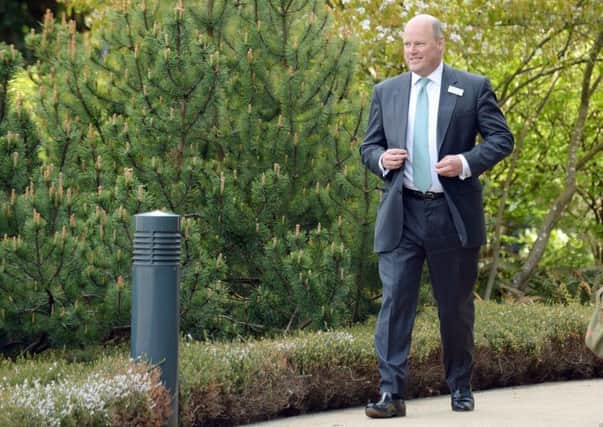Comment: New bank boss have to hit ground running


In RBS’s case this was largely the disastrous acquisition of ABN Amro, and a bid for global domination by former boss Fred Goodwin. In Lloyds’ case, Horta-Osorio had to contend with his predecessor Eric Daniels allowing himself to be persuaded to take over the basket case of HBOS (the report of its collapse is finally out from the regulators today).
Then we have Bill Winters taking over earlier this summer from Peter Sands at Standard Chartered, as the emerging markets-focused bank is still in the throes of being badly shaken by the severe and continuing headwinds in those markets, including quite a substantial flight of capital.
Advertisement
Hide AdAdvertisement
Hide AdThe new Standard Chartered man’s initial actions have included announcing a £3.3 billion rights issue, a scrapped dividend and 15,000 more job cuts.
The latest demonstration of this trend is at Barclays whose incoming chief executive Jes Staley will have viewed with regret, but not surprise, yesterday that the bank has been fined an additional $150 million (£98.6m) by New York’s banking regulator to resolve allegations it rigged foreign exchange markets. The settlement with the New York Department of Financial Services is for “internal systems and controls failures”, a phrase so cliched in the banking industry now it could almost be used in a corporate logo.
Barclays will have to take the financial hit in its Q4 2015 results, which Staley will preside over as he takes over on 1 December, and he is also expected to eventually unveil further cuts in its investment banking arm.
The latest related to Barclays’ electronic trading platform for foreign exchange and follows the $485m that the bank agreed to pay the authority in May over manipulation of forex spot trading. Staley has a far bigger in-tray than just legacy issues, but when they do appear at Barclays and its main UK rivals they demonstrate starkly that new bank bosses have to navigate stormy waters from day one.